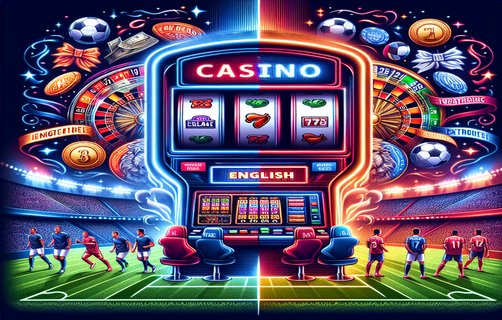Mastering the Game: A Comprehensive Analysis of Luck, Strategy, and Regulation in Lottery and Poker
Luck plays a crucial role in the excitement of lottery games; however, when we navigate the world of poker, strategy becomes the name of the game. Drawing parallels between these two realms, we can explore various elements that contribute to success—be it the incorporation of wild symbols in slot machines or the strategic positioning in poker games. Additionally, understanding regulatory bodies like the Gibraltar Gambling Commissioner hints at the importance of legitimacy in gambling.
Wild Symbols are a staple in many gambling games, especially in slot machines. They serve as a unique element that increases the chances of winning by substituting for other symbols. This aspect introduces a layer of unpredictability and excitement, much like drawing a winning lottery ticket. In poker, however, the game fundamentally pivots away from such luck-based elements toward strategy and skill. Players must learn to adapt to their opponents, reflecting on their behavior and modifying their game plan accordingly. This flexibility is vital, especially in tournaments where player styles vary widely.

Position in poker is another critical aspect that often determines the game’s outcome. The player’s position at the table can influence their decisions to raise or fold, which are pivotal actions throughout the game. A player in a 'late' position can benefit from observing others’ actions before deciding on their move, whereas an 'early' position might require more caution due to lack of information. Thus, understanding one’s position can lead to making informed decisions, heightening the chances of success—a lesson not traditionally considered in the realm of luck-based lotteries.
The question of maximum bets is paramount in both poker and lottery games. In poker, setting a maximum bet encourages strategic depth. Players must assess their risk versus reward in every hand they play. Large bets can intimidate weaker opponents into folding, thereby securing a win. In contrast, lotteries often have maximum payout limits that shape players' decisions. Understanding these limits allows players to strategize effectively, whether in wagering larger sums on fewer tickets or spreading small bets over many draws.
When diving into user reviews, the experiences shared by players can illuminate much about the games’ functioning and enjoyment factor. Insightful reviews can reveal trends such as popular strategies or common pitfalls to avoid, making them invaluable for novices and experienced players alike.
The regulatory environment, such as the oversight from the Gibraltar Gambling Commissioner, emphasizes the need for a trustworthy gaming landscape. This commission works to ensure fair play, protect consumers, and maintain ethical standards within the industry. Trustworthiness is essential, especially in games of chance; players need assurance that the odds are as fair as the platform claims. Regulations foster safer gambling practices, ensuring that while luck is a factor, players are also protected within a structured system.

Finally, the decision to raise or fold in poker encapsulates the analytical mindset required for successful gameplay. Assessing one's hand, predicting opponents' movements, and considering the pot odds all form the crux of this decision-making process. Similar contemplation can be applied when considering participation in lotteries—choosing the right time and amount to play can set one on the path to potential victory.
In conclusion, while lottery games are inherently based on luck, poker navigates a complex interplay of strategy and analysis. By examining wild symbols, the importance of position, betting limits, user feedback, regulatory frameworks, and tactical decisions, players can enhance their chances of success in whichever game they choose to engage.
